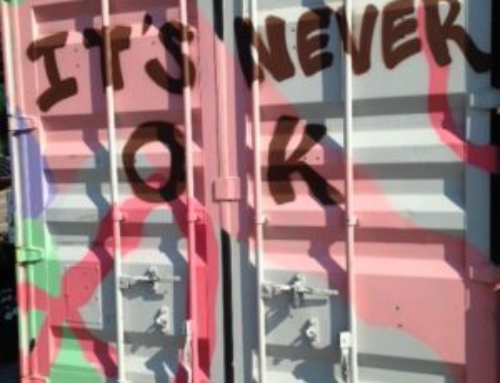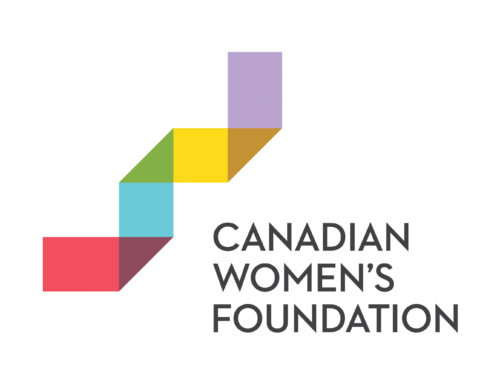Ableism shows up everywhere. And for women or femmes or gender non-binary people, sometimes it’s hard to pinpoint whether it’s misogyny, ableism, or a gnarly combination.
So how does ableism enter the dating world?
“Ableism in dating is not overt, aggressive or necessarily oppressive. It is the things NOT SAID, the quiet questions, the missed opportunities born out of fear…” said Andrew Gurza, founder of the Disability After Dark podcast.
Often, the way that disability and accessibility are perceived can affect dating. Personally, I’ve learned that feminist crip rage isn’t understood or appreciated by all dates. (I mean, it is to me, but.) Dates who aren’t familiar with this area of advocacy and intimacy may find accessibility too demanding. It might seem like too much for people who don’t see ableism as a social problem.
Below are a few instances of ableism gathered from people in Quebec and Ontario, and some of my own experiences. These are excerpts from interviews and conversations I conducted during my time working for the Fédération du Québec pour le planning des naissances (FQPN), co-coordinating the ACSEXE+ project in 2015.
Often, when it comes to disability, there can be confusion about the way we move or communicate or perceive things, and also confusion as to what our body language is telling another person or how that other person should interact with us.
One anonymous respondent said:
“The most common experiences that I have gone through have been attached to the wheelchair and my speech disability and the connotations that others have when they’re not aware of my disability. Challenges are seen in the form of:
a) not being able to enter a popular bar or club that a date would have liked to spend a night out at;
b) the appearance of being drunk due to lack of coordination and slurred speech; or
c) the first time awkwardness linked to getting intimate.”
Meeting people can be a challenge for some disabled people for several reasons, including ableist assumptions about us. This anonymous interviewee talked about their experience with online dating:
“There are all kinds of reactions. Most of the time people feel sorry, and that hurts just as when someone stops replying because they got scared.”
Queer dating scenes don’t seem to be an exception to this. One queer respondent put it this way:
“I tried online dating a couple of times. I found it so stressful. Having to come out as disabled because it is not obvious online in my case. Having to perform the story: “Hey I’m disabled but it’s not that bad.” I can’t do it anymore. It makes me sick. Many friends tell me I should make more effort and date more often, but I just don’t feel like I have the energy for that right now.”
In my experience, there are very particular looks for “types” that we can use to identify or signal other queers to us. If, for reasons of body stuff or mobilizing or the way that we communicate, we don’t fit into those categories, or if we don’t want to, it can be a lot harder to meet people or even enter into queer dating scenes.
Some people said there was more ableism in the families of partners than with partners themselves. This anonymous accessibility activist said:
“Most of the people I was seeing were friends before, so… they already knew [about my disability]. The only ableist aspect with seeing friends is that they were more concerned with how their families would react to our relationship. It was like, ‘yeah, we could get serious, but it’s gonna get complicated with our families talking’. They were being honest, I guess.”
Another anonymous interviewee shared similar experiences:
“I’ve observed ableism from the family and friends of the individuals I have dated in past.”
A memorable moment for me: a family gathering of my boyfriend’s at the time. I was strongly encouraged to change his nephew’s diaper while being questioned by his mother about my potential as a child bearer. Here, my gender and her curiosity about my disability, and the expectation that I would be the future primary caregiver of desired grandchildren, combined to make for a particularly strange gathering around the changing table.
Awkward!
And on staying in the wrong relationship our anonymous activist said:
“There are two main fears: 1) not being accepted and 2) being alone. I [have] stayed in relationships so that I wouldn’t be alone. But you’re hurting yourself, because it’s like a poison that seeps in the farther you go. You get to a point where you say, how did we get here? Wish we had dealt with this earlier…”
When it comes to women, femmes,girls and gender non-binary people, there are multiple layers of awkward or weird comments and unwelcome commentary. I can’t even count the times that I man has tried to get my attention or ask me out by first saying something like “oh what’s a pretty girl like you doing in that wheelchair?” Or the time I was out on a date with a man and he was confused and also endeared by the fact that I moved my body differently than him. There’s a specific kind of condescending questioning that this man – like others before him – felt in accessing information about my body. He felt completely entitled to ask me questions that were based on the assumption that I was abnormal and as such, needed to provide him with an explanation. All this on a first date!
As women and femmes we are under a lot of pressure to perform, be pretty, be sexy, fit images of femininity, say the right thing and when we have another differentiating factors such as a visible or invisible disability, there can be many constricted social requirements for us to comply with in order to feel accepted.
“People consider us as disabled people and not as disabled women” said Isabelle Boisvert during an interview, pointing out the common experience of being desexualised in a culture that equates women’s sexuality with a narrow image. I think disabled people across the board and across the gender spectrum receive this question a lot: ‘can you have sex?’
How many of my disabled, sick, Deaf sisters and siblings have encountered the condescending “let me help you with that”, as though we couldn’t possibly know what we need or how to navigate? Or had a date actually ignore a request for assistance in another way or in the way that actually would help?
This has definitely come up on more than one date with a man in my life: the chauvinistic and paternalistic “wow, you do so well, considering”, draws on a pervasive assumption that my disability prevents me from living my life. Inaccurate.
My advice? It can be really hard to distinguish between sexism, misogyny and ableism, but one thing is clear: If you’re feeling stigmatized or uncomfortable in dating, listen to your instincts. Ableism and other forms of discrimination often find obvious and subtle ways to enter into our dating lives.
For me, part of overthrowing ableism is dismantling misogyny and vice versa. They’re completely intertwined and harmful to people of all genders.
Feminist responses to ableism in dating include defending respect and sexual freedom for all disabled people. Accessibilizing is a process.
These acts of resistance can take many forms, including challenging ableist comments, resisting the urge to ask uninvited questions, ensuring a venue or show is accessible for your date, supporting disabled family members in their dating pursuits, negotiating consent with cards or a list, working for physical accessibility, learning sign language and more. If we join together, we can break down all kinds of barriers and go on some great dates.
Thank you so much to those respondents who shared their insights and experiences. It’s important to note that these respondents aren’t representative of their communities, however, as there is no universal experience of disability, there is also no universal design when it comes to accessible dating. There are certainly commonalities between stories, but each experience and story is particular to the teller.
If you have ways that you’ve experienced ableism in dating and want to share them for a future piece or just to vent, you can email Aimee at aimee@underwatercity.ca. You can also visit her website https://aimeelouw.com and her blog https://underwatercityproject.tumblr.com/ for more.





